
"Me and Bobby McGee" is a song written by American singer-songwriter Kris Kristofferson and originally performed by Roger Miller. Fred Foster shares the writing credit, as Kristofferson wrote the song based on a suggestion from Foster. A posthumously released version by Janis Joplin topped the Billboard Hot 100 in 1971, making the song the second posthumously released No. 1 single in U.S. chart history after "(Sittin' On) The Dock of the Bay" by Otis Redding. Gordon Lightfoot released a version that reached number 1 on the Canadian country charts in 1970. Jerry Lee Lewis released a version that was number 1 on the country charts in December 1971/January 1972 as the "B" side of "Would You Take Another Chance on Me". Billboard ranked Joplin's version as the No. 11 song for 1971.

Richard Dean Taylor was a Canadian musician, most notable as a singer, songwriter, and record producer for Motown during the 1960s and 1970s. According to Jason Ankeny, Taylor was "one of the most underrated acts ever to record under the Motown aegis."

"Ooo Baby Baby" is a song written by Smokey Robinson and Pete Moore. It was a 1965 hit single by the Miracles for the Tamla (Motown) label.

Would You Lay with Me (In a Field of Stone) is the third studio album by American country music singer Tanya Tucker. It was released on February 11, 1974, by Columbia Records. The album was produced by Billy Sherrill and includes Tucker's third No. 1 single, "Would You Lay with Me (In a Field of Stone)". It was certified Gold by the RIAA in 1995 for sales of more than 500,000 copies.
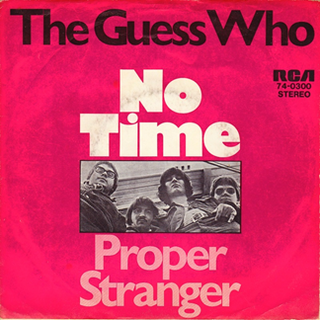
"No Time" is a song by Canadian rock band The Guess Who, composed by guitarist Randy Bachman and lead singer Burton Cummings.
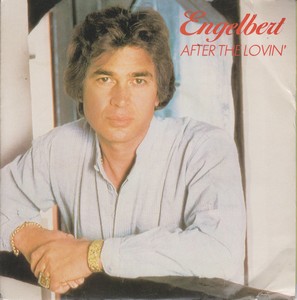
"After the Lovin'" is a single performed by Engelbert Humperdinck, produced by Joel Diamond and Charlie Calello, and composed by Ritchie Adams with lyrics by Alan Bernstein. The single was a U.S. top-ten hit in late 1976/early 1977, reaching number eight on the Billboard Hot 100 and number five on the Cash Box Top 100. It became a RIAA gold record. It is ranked as the 61st biggest U.S. hit of 1977. The song also reached number 40 on the country singles chart and spent two weeks atop the easy listening chart. It was Humperdinck's final Top 40 Billboard hit.

"Don't Give Up on Us" is a hit song recorded by American-British singer David Soul, and written by Tony Macaulay.
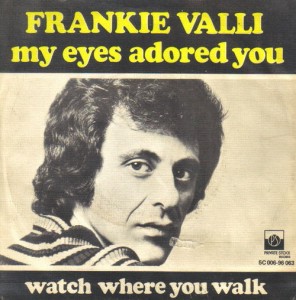
"My Eyes Adored You" is a 1974 song written by Bob Crewe and Kenny Nolan. It was originally recorded by The Four Seasons in early 1974. After the Motown label balked at the idea of releasing it, the recording was sold to lead singer Frankie Valli for $4000. After rejections by Capitol and Atlantic Records, Valli succeeded in getting the recording released on Private Stock Records, but the owner/founder of the label, Larry Uttal, wanted only Valli's name on the label. It is from the album Closeup. The single was released in the US in November 1974 and topped the Billboard Hot 100 in March 1975. "My Eyes Adored You" also went to number 2 on the Easy Listening chart. Billboard ranked it as the No. 5 song for 1975.

"Tell Me a Lie" is a song composed by Mickey Buckins and Barbara Wyrick. Originally recorded by Lynn Anderson for her 1974 What a Man My Man Is album, it was released later that same year as a single by Sami Jo Cole, who took it to number 21 on both of the major U.S. pop charts. It also charted in Canada (#17). Cole's version was also an Adult Contemporary hit, reaching number 14 in the U.S. and number 27 in Canada.

"More Love" is a 1967 hit single recorded by the American soul group The Miracles for Motown Records' Tamla label. The single, included on the group's 1967 album Make It Happen, later reissued in 1970 as The Tears of a Clown. Kim Carnes's 1980 cover of the song reached the Top 10 of Billboard's Adult Contemporary and Hot 100 charts.

"Last Time I Saw Him" is a 1973 song by Diana Ross, being a composition by Michael Masser and lyricist Pam Sawyer. The track was produced by Masser and released as the first single on December 6, 1973, from her album of the same name.

"Shake Your Groove Thing" is a song by R&B duo Peaches & Herb. The single reached No. 5 on the U.S. Billboard Hot 100 and No. 4 on the Billboard R&B Chart. It also reached No. 2 for four weeks on the Billboard Disco chart in 1978. The song spent 22 weeks on the American charts and became a Gold record.

"Neither One of Us (Wants to Be the First to Say Goodbye)" is a song recorded by Gladys Knight & the Pips. Released in December 1972 on Motown's Soul Records imprint as S 35098, it became one of their biggest hit singles to date, and was also the last single the group released prior to them leaving Motown for Buddah Records in February 1973.

"If You Love Me (Let Me Know)" is a song written by John Rostill that was a 1974 hit single for Olivia Newton-John. It was her second release to hit the top 10 in the United States, reaching number 5 on the pop chart and number 2 on the Easy Listening chart. It also reached number 2 on the Billboard country chart. As with her single "Let Me Be There", Mike Sammes sings a bass harmony. It was nominated for the 1974 Country Music Association Award for Single of the Year.

"Arizona" is a song written by Kenny Young and recorded in 1969 by Mark Lindsay, a solo effort while still lead singer for Paul Revere and the Raiders. Lindsay was backed by L.A. session musicians from the Wrecking Crew. The single peaked at number 10 on the Billboard Hot 100 chart on 14 February 1970 and was awarded a RlAA Gold Disc in April 1970. A version by the British band The Family Dogg was also released in 1969.
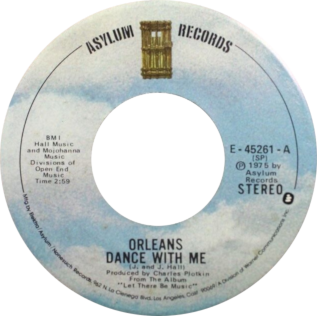
"Dance with Me" is a 1975 hit single by American soft rock band Orleans from their second studio album, Orleans II (1974).

"Friends" is a song written by English musician Elton John and songwriter Bernie Taupin, and performed by John. It was John's third U.S. hit, and his second to reach Top 40 after the breakthrough success of "Your Song".
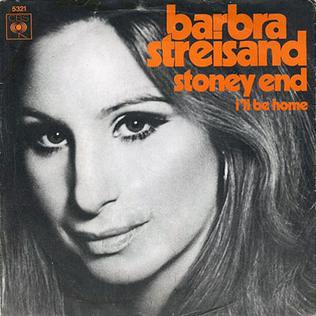
"Stoney End" is a song written by Laura Nyro and released in February 1967 on her debut album More Than a New Discovery. According to childhood friend Alan Merrill, Nyro originally intended the song, a gospel-inflected uptempo piece, to be performed at a slower pace. The best known recording of Nyro's album version of the song was a hit for Barbra Streisand in 1970.

"Sweet Dreams" is a song by English/Australian soft rock duo Air Supply from their sixth album, The One That You Love. The song reached No. 5 on the Billboard Hot 100 and No. 4 on the Adult Contemporary chart in early 1982. The song also reached No. 8 on Cash Box. In Canada, it peaked at No. 14 on the RPM Top 100 and No. 15 on the Adult Contemporary chart.
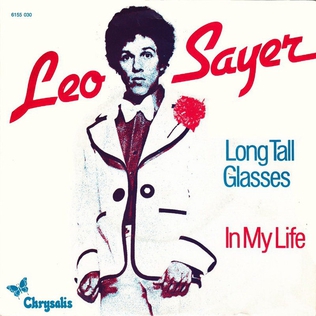
"Long Tall Glasses (I Can Dance)" is a 1974 song by Leo Sayer, co-written with David Courtney. It was released in the United Kingdom in late 1974, becoming Sayer's third hit record on both the British and Irish singles charts and reaching number four in both nations. It was included on Sayer's album Just a Boy.





















